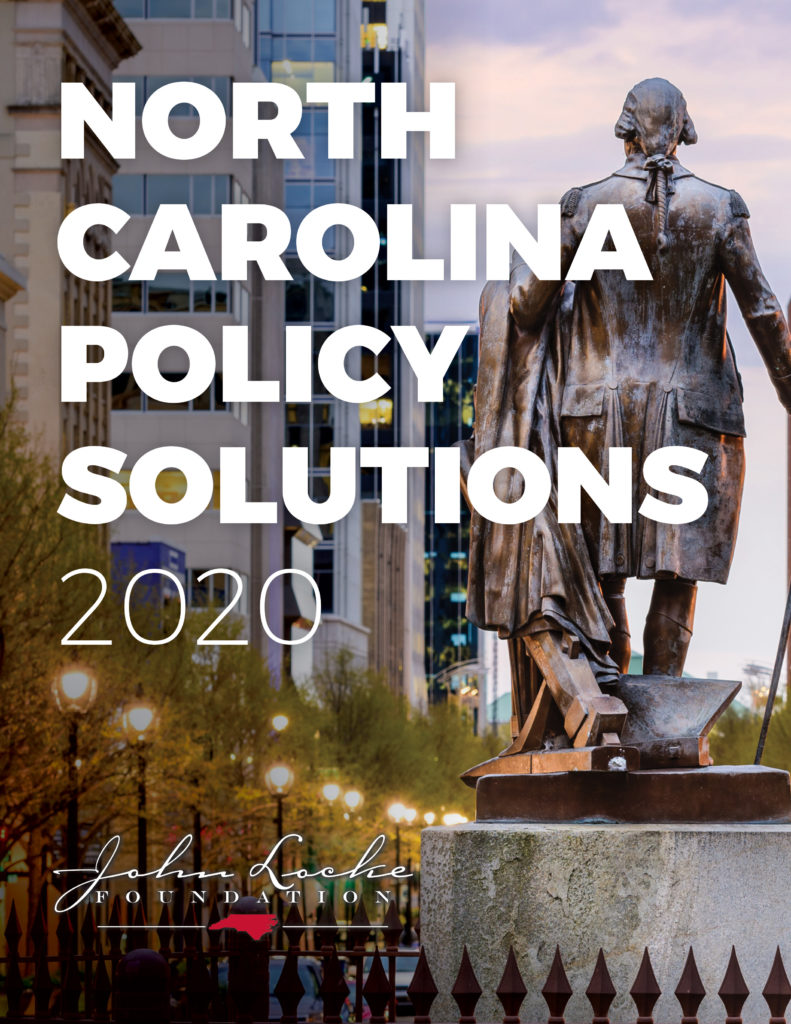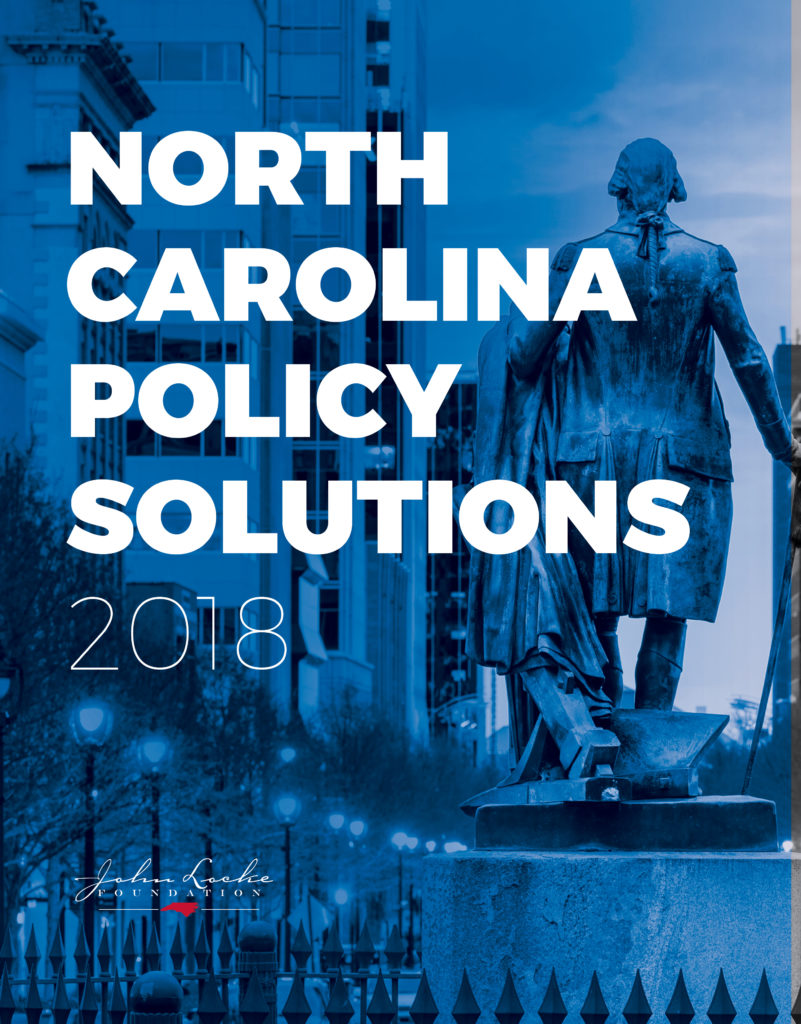Agenda 2012
A Candidate's Guide to Key Issues in North Carolina Public Policy
Introduction
Every two years since 1996, coinciding with North Carolina’s races for governor and lieutenant governor, council of state, and the general assembly, the John Locke Foundation has published a revised edition of Agenda, our public policy guide for candidates and voters. Typically as we enter the campaign season, candidates for public o ce in North Carolina are faced with a daunting task: to develop informed positions on dozens of public policy issues. is year is no di erent. In the pages of Agenda 2012 we provide a concise and easily digestible guide covering dozens of specific issues, from taxes and spending to energy policy and education.
In 1946 Henry Hazlitt wrote Economics in One Lesson, his now classic and timeless introduction to economics and economic policy. In writing the introduction to the 50th Anniversary Edition in 1996 (three years after Hazlitt’s death), Steve Forbes noted, “every tenet of the new economics that Hazlitt dispels continues today to rear its head in one form or another.” It is quite clear that this is true for North Carolina. Many of the problems and solutions noted in our rst edition of Agenda back in 1996 persist in 2012. Concerns about misplaced spending priorities, high and increasing overall levels of spending, and a regulatory and tax burden that punishes productive activities are problems that plague North Carolina’s citizens and economy. Education nance and performance, Medicaid, and the tax code all continue to cry out for reform. In some areas, energy policy for example, problems have been made worse, while in others, like educational choice and the expansion of charter schools, there has been improvement.
With this said, we have made some changes in this year’s Agenda guide. e most obvious has to do with the speci c topics covered. is year we have 35 separate entries covering about 66 pages. We decided that it would be more useful to cover some issues with greater speci city than in 2010. For example, in the past we have had a single entry titled “Tax Reform.” In Agenda 2012 under the general heading of “Tax Reform” we have three separate entries “The Income Tax,” “The Sales Tax,” and “The Corporate Income Tax.” In 2010 we had one section titled “Energy Policy.” In 2012 this is divided into two separate topic areas, “Fracking” and “Renewable Energy.” By being more speci c in the topic areas we cover, we believe that this document will be of greater value, both in content and in ease of usage.
Regardless of the number of speci c topic areas covered, the unifying principles of Agenda 2012 are the same as they have always been. All of our analysis and policy proposals seek to advance individual liberty, personal responsibility, and a free market economy. Whether we are discussing school choice, economic growth, or health care reform, these are the concepts that have animated the John Locke Foundation’s analysis since its founding in 1989. We rmly believe that policies that advance these goals are also policies that will create employment opportunities, lower healthcare costs and improve access, reduce the costs of energy, and better educate our children. Both in the United States and internationally, it has been proven time and time again that liberty and prosperity go hand in hand.
Agenda 2012 is a joint e ort of the research sta at the John Locke Foundation. We would like to thank research interns Baxter Rollins, Milton Mai, Shane Williams, and Daniel Simpson for all their help. We would also like to thank Nicole Fisher for her entry on “Obamacare.”
Each of these entries is meant to be an introduction. For readers wanting more detailed analyses of the topics here, we offer several additional resources in a reference section at the end of this guide.




